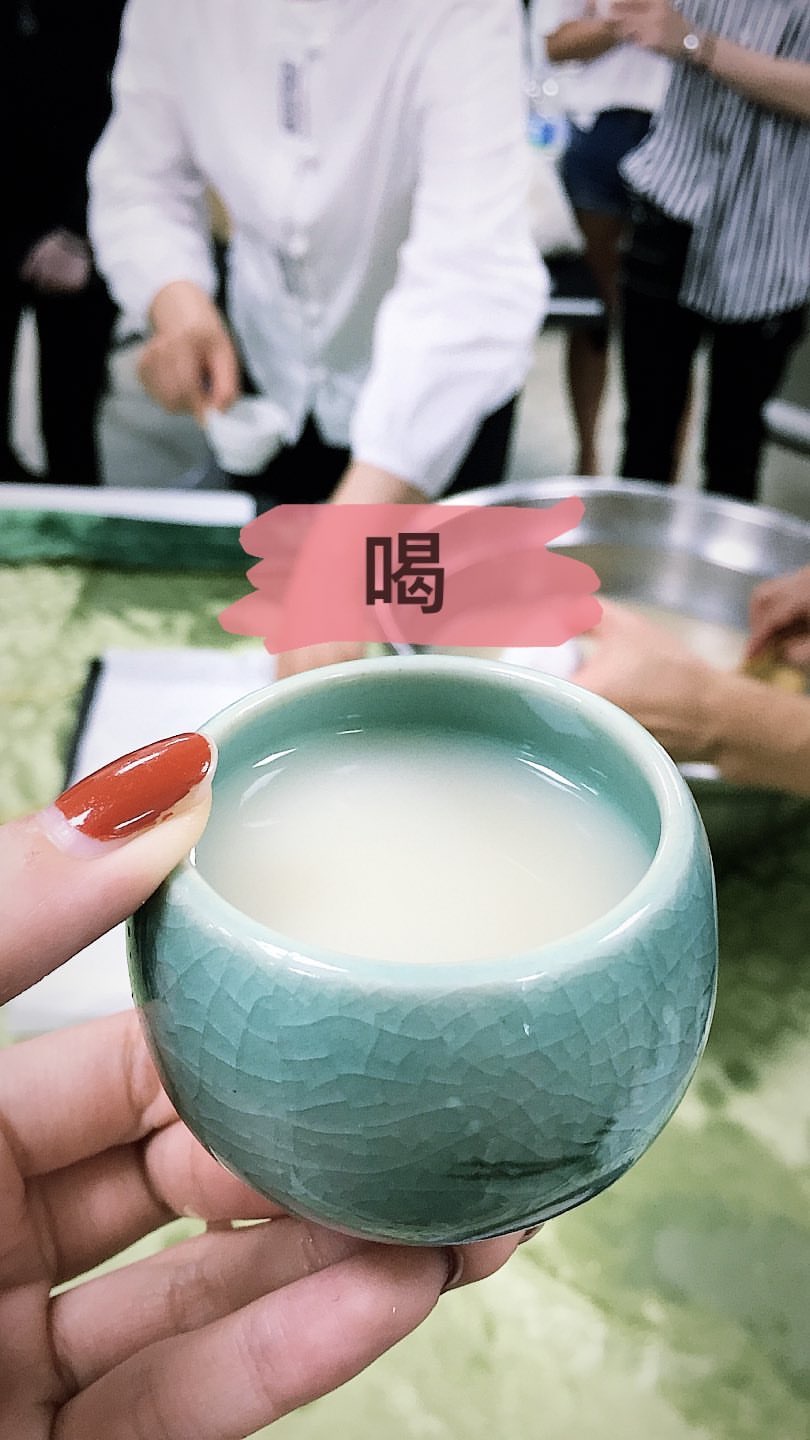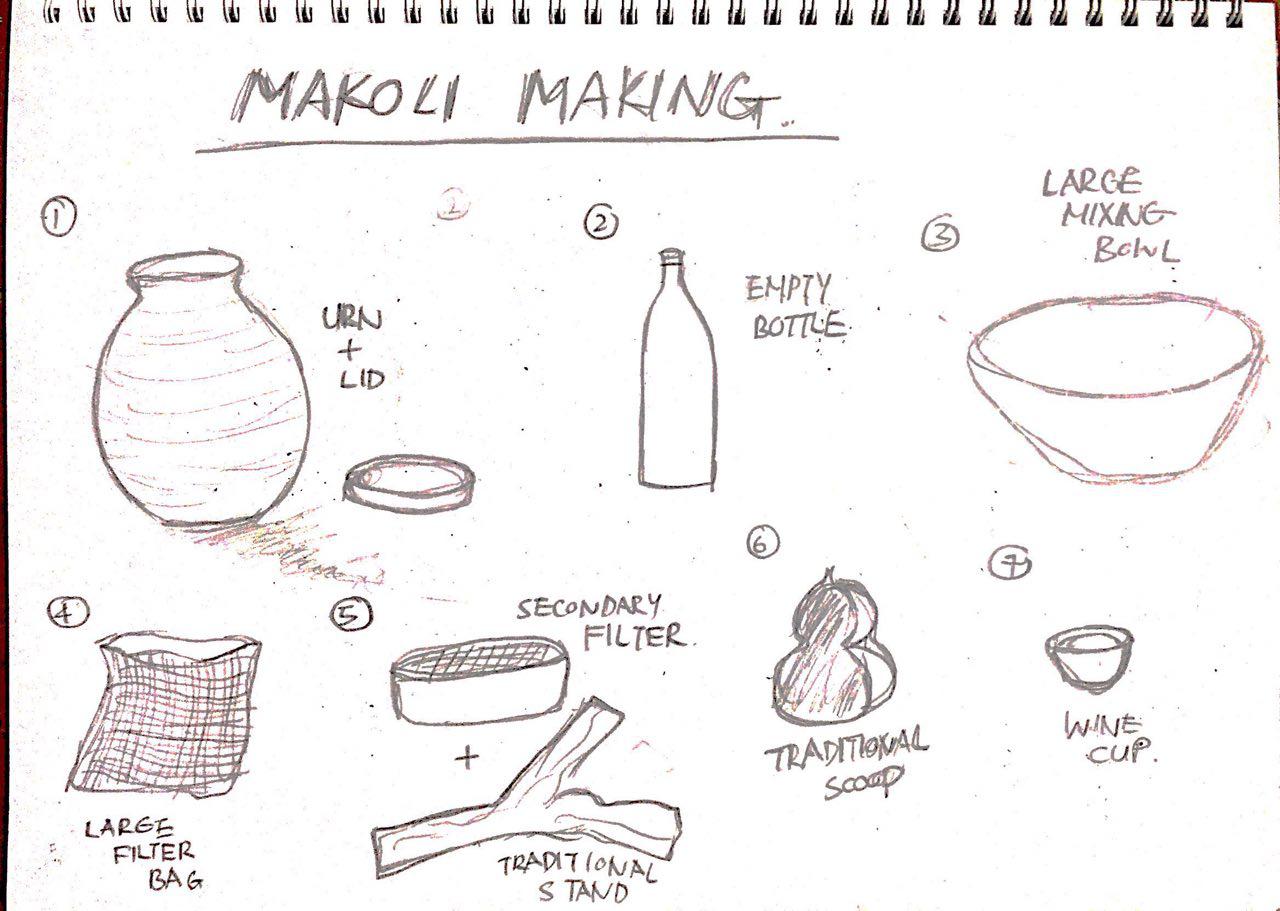Makkoli 막걸리 is a traditional Korean rice wine that has been passed down in the Korean culture for generations (fun fact: it is the oldest alcoholic beverage in Korea). The milky, off-white and lightly sparkling rice wine has a slight viscosity that tastes slightly sweet, tangy, bitter, and astringent. It has many steps involved in making it and is considered a dying tradition that Korea has been trying to revive. I participated in a workshop to make it as part of my Korean class.
Process Documentation
To make makkoli, a lot of preparation has to be done before. Rice has to washed 5 times and cooked the day before. When making the makkoli itself, the bare hands are of essence as it is part of the process to let your hands bacteria and “taste” intermingle with the yeast and water. There also has to be a time period of at least 1-2 weeks of fermentation before the aforementioned mixture is filtered out and becomes drinkable.
Steps

Tools Used
- Urn and accompanying lid
- Hands
- Empty Bottle
- Filter Bag
- Secondary Filter Basin
- Large Mixing Bowl
- Scoop
- Wine Cup

Worksite Documentation
In general, the worksite for makkoli making requires a good amount of space for laying out the tools as well as a cooling and shaded space for fermenting the makkoli mixture. The good thing is that once you have a set of basic tools to make the makkoli (an urn, sieve, and ladle), you are pretty much set to be able to make makkoli. It must also be understood that makkoli is made in large batches so as much space as the worksite needs is only temporary.
Pain Points
As mentioned before, the “pain” comes in the tedious process and preparation beforehand. One has to be patient enough to endure through the entire process.
Also, the sourcing of the ingredients has to be done right. Different origin of ingredients can affect the taste of the end product. However, this is also interesting as it is only through experimenting and exploring with different types of rice, water, hands etc that one can cultivate their ideal taste of makkoli.
Lastly, the knowledge and tools used should also be good enough. if one has only a brief clue on making the makkoli, then their attempt might affect the taste severely. If the tools used are not right, then the essence behind Makkoli is lost as well.
